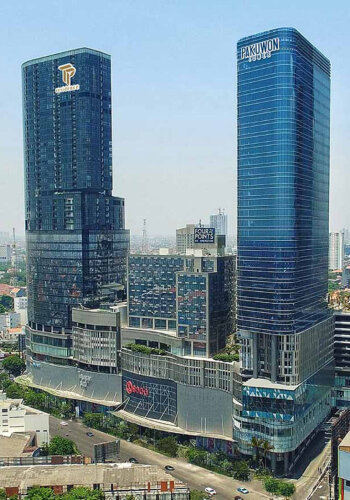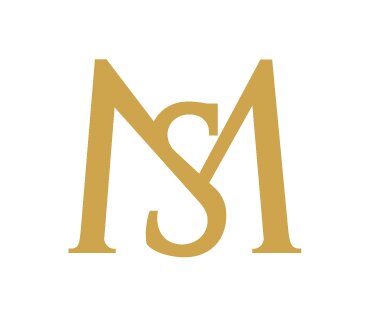Best Art & Cultural Property Law Lawyers in Surabaya
Share your needs with us, get contacted by law firms.
Free. Takes 2 min.
List of the best lawyers in Surabaya, Indonesia
About Art & Cultural Property Law in Surabaya, Indonesia
Art & Cultural Property Law in Surabaya, Indonesia, is a specialized field that addresses the legal aspects of cultural heritage and art management. Given Surabaya's cultural richness and the rising prominence of art markets, legal frameworks have been established to protect and regulate cultural and artistic properties. This includes matters related to the preservation of cultural heritage, the protection of intellectual property rights associated with artworks, and the regulation of art transactions to prevent illegal trafficking or misappropriation.
Why You May Need a Lawyer
There are several scenarios where individuals or entities may require legal assistance in the realm of Art & Cultural Property Law:
- Cultural Heritage Protection: Individuals or organizations involved in the preservation of cultural sites or artifacts may need legal guidance to comply with regulations and secure necessary permits.
- Art Collections and Transactions: Buyers, sellers, or collectors of art may seek legal advice to ensure their transactions are legitimate and comply with local and international laws.
- Intellectual Property Issues: Artists or creators may require help with protecting their intellectual property rights, addressing copyright infringements, or licensing agreements.
- Dispute Resolution: Legal expertise may be needed to resolve disputes over ownership or provenance of cultural properties or artworks.
Local Laws Overview
In Surabaya, and Indonesia at large, several key laws and regulations govern Art & Cultural Property:
- Cultural Heritage Law: This law aims to protect the nation's tangible and intangible cultural heritage, emphasizing conservation and preservation efforts.
- Intellectual Property Law: These laws protect the rights of creators and ensure fair use and distribution of artistic works.
- Trade Regulations: Local customs and trade laws regulate the export and import of cultural goods to prevent illegal trafficking.
- Museum and Galleries Regulations: Regulations oversee the management of public and private museums to ensure ethical governance and public access.
Frequently Asked Questions
What is the process for registering a cultural artifact in Surabaya?
The registration process typically involves submitting information about the artifact to the local cultural heritage office to document and evaluate its significance. This may require providing provenance records and undergoing an inspection process.
How can I protect my artwork's intellectual property in Indonesia?
Artists can protect their works by registering copyrights with the Directorate General of Intellectual Property Rights. This provides legal protection against unauthorized reproduction or distribution.
Are there laws against the export of cultural properties from Indonesia?
Yes, Indonesia has strict regulations preventing the export of certain cultural properties without government approval to protect its heritage from illegal trafficking.
Can foreign artworks be freely imported for exhibition in Surabaya?
Foreign artworks can be imported, but they must comply with local customs regulations and may require permits or agreements, especially if they are part of a temporary exhibition.
What should I do if I suspect an artwork in my collection is counterfeit?
It is advisable to seek the expertise of a lawyer along with art historians and appraisers to assess authenticity and explore legal avenues for reporting or resolving the issue.
How are art disputes typically resolved in Surabaya?
Art disputes can be resolved through mediation, arbitration, or litigation, depending on the nature of the dispute and the parties involved. Legal experts can provide guidance on the best approach.
What constitutes illegal art trafficking under Indonesian law?
Illegal art trafficking involves the unauthorized smuggling, selling, or possession of cultural artifacts or artworks that are protected by national or international laws.
Is there a legal requirement for gallery owners to maintain records of their artworks?
Yes, gallery owners are usually required to maintain accurate records of their collections, transactions, and provenance details to ensure transparency and accountability.
What are the penalties for violating cultural property laws in Indonesia?
Penalties can range from fines to imprisonment, depending on the severity and nature of the violation, such as illegal trade or damage to cultural heritage sites.
Can artists contest unauthorized use of their works in other countries?
Artists can contest misuse through international legal mechanisms or agreements, and lawyers specializing in international intellectual property law can assist in such cases.
Additional Resources
For further assistance, consider reaching out to these resources:
- Directorate General of Culture: Provides guidelines and regulatory information on cultural heritage issues.
- Indonesian National Commission for UNESCO: Offers insights and support on heritage and cultural matters.
- Local Legal Practitioners: Connect with lawyers who specialize in Art & Cultural Property Law for personalized advice.
Next Steps
If you require legal assistance in Art & Cultural Property Law, consider taking the following steps:
- Identify your specific legal needs and gather all relevant documentation related to your art or cultural property.
- Seek recommendations for reputable lawyers or firms specializing in Art & Cultural Property Law in Surabaya.
- Consult with multiple legal experts to compare advice and services before making your choice.
- Engage with your chosen legal professional to understand the process, potential costs, and expected outcomes.
By following these steps, you can ensure that your interests are well-represented and protected within the legal framework in Surabaya.
Lawzana helps you find the best lawyers and law firms in Surabaya through a curated and pre-screened list of qualified legal professionals. Our platform offers rankings and detailed profiles of attorneys and law firms, allowing you to compare based on practice areas, including Art & Cultural Property Law, experience, and client feedback.
Each profile includes a description of the firm's areas of practice, client reviews, team members and partners, year of establishment, spoken languages, office locations, contact information, social media presence, and any published articles or resources. Most firms on our platform speak English and are experienced in both local and international legal matters.
Get a quote from top-rated law firms in Surabaya, Indonesia — quickly, securely, and without unnecessary hassle.
Disclaimer:
The information provided on this page is for general informational purposes only and does not constitute legal advice. While we strive to ensure the accuracy and relevance of the content, legal information may change over time, and interpretations of the law can vary. You should always consult with a qualified legal professional for advice specific to your situation.
We disclaim all liability for actions taken or not taken based on the content of this page. If you believe any information is incorrect or outdated, please contact us, and we will review and update it where appropriate.













